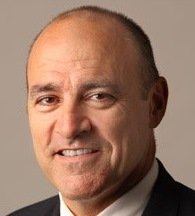
How much sleep should you get during recovery from coronary bypass surgery?
A healthy amount of sleep is so very important following CABG: coronary artery bypass grafting surgery.
“Most patients have difficulty returning to their normal sleep patterns for several weeks after surgery,” says Dr. Michael Fiocco, Chief of Open Heart Surgery at Union Memorial Hospital in Baltimore, Maryland, one of the nation’s top 50 heart hospitals.
“It is easy to fall asleep, but difficult to stay asleep for more than three or four hours in a row.
“This is caused by many factors, including post-op discomfort, anxiety, and an overall feeling of fatigue, causing napping during the day and therefore fewer consecutive hours of sleep at night.”
My mother had quintuple bypass surgery, and she slept a lot (in the hospital as well as at home) following the CABG procedure.
Of course, a ton of sleeping will occur in the first few days following coronary bypass surgery, partially due to lingering effects of general anesthesia, plus side effects of painkillers.
Once the patient is in the cardiac wing for continuing recovery from bypass surgery, a lot of sleeping may continue to occur, if for no other reason that there’s not much to do in a hospital room between brief periods of walking therapy and attention from medical staff, unless you have a steady flow of visitors.
Dr. Fiocco continues, regarding once the CABG patient is home: “Also, many patients find it easier to sleep in a reclining chair compared to the bed (easier to get in and out), which may also limit sleep at night.
“These sleep issues are almost always self-limiting and resolve in several weeks without intervention. Occasionally a sleeping pill is necessary but only for a limited time.”
Dr. Fiocco also points out: “The trauma of major surgery combined with the emotional aspects of cardiac surgery lead to significant fatigue, which likely begins with loss of sleep before the surgery due to the anxiety leading up to the operation.”
In my mother’s case, there was little time for pre-surgery anxiety because she had only two hours’ notice of the bypass surgery!
And upon being told she needed emergent bypass surgery, she was already sedated from the preceding catheter angiogram procedure.
Dr. Fiocco says that the uncomfortable hospital bed doesn’t exactly encourage quality sleep, nor do the “interruptions for vital signs and blood draws, and sleeping in a strange environment.”
The CABG patient may be quite exhausted while in the hospital, but unable to sleep for significant chunks of time due to the various distractions (medical procedures, visits, even noisy floor cleaning machines in the corridor).
“Sleeping more than 10 hours/day may be a warning sign of depression, but it is more likely to be expressed in a lack of motivation to walk, read or get out of the house and begin normal activities,” says Dr. Fiocco.
The coronary bypass patient should listen to his or her body, follow cardiac rehab protocols (which will be supplied in booklet form) and keep in continuous contact with the post-surgery cardiac care team.

Dr. Fiocco specializes in treating artery disease, valvular disease and aortic aneurysm. His heart care expertise has earned him recognition by Baltimore Magazine as a Top Doctor in 2010, 2011, 2013, 2016 and 2017.
 Lorra Garrick has been covering medical, fitness and cybersecurity topics for many years, having written thousands of articles for print magazines and websites, including as a ghostwriter. She’s also a former ACE-certified personal trainer.
Lorra Garrick has been covering medical, fitness and cybersecurity topics for many years, having written thousands of articles for print magazines and websites, including as a ghostwriter. She’s also a former ACE-certified personal trainer.
.











